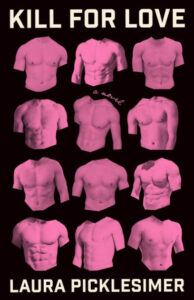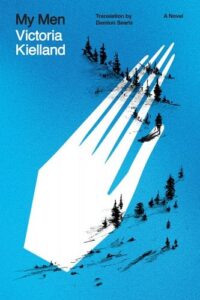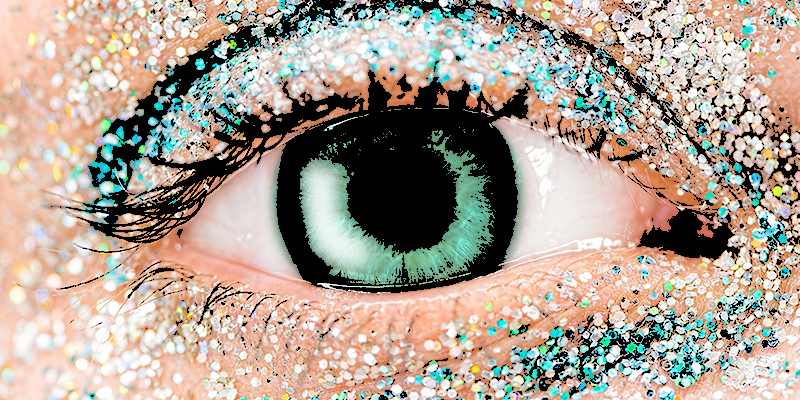The lack of women serial killers in fiction is often a source for 90s-style feminist outrage—an extreme version of “anything you can do, I can do better”—but the female serial killers that do pepper crime fiction have, until recently, been rather like cardboard cutouts of their male counterparts, mostly around for shock value. I shudder to think of one popular tale-turned-film in which the woman committing the crimes was merely carrying on for her father (the acceptable form of taking a man’s job). Women serial killers in fiction have, in effect, been the twist—a hat trick from an author who believes too much in the inherent kindness of women to realize why women might be tempted to kill (and kill again, and again).
Ever since Gone Girl, women’s rage has been considered marketable ground for psychological thrillers, and fiction has been far more likely to embrace the angry woman as a main character since the #metoo movement began, but she must still be Wronged in an Acceptable Manner (usually the twist with the angry woman is that she is, in fact, justified in her rage, or has at least been manipulated into her actions, and is never just the cheerful psycho. But I digress…).
Now, the fiery rage is transforming into cool-blooded killings, as an army of Patricia Batemans rises to eviscerate those who annoy them, providing plenty of detailed product recommendations and pop culture references along the way. Uniting all of the following protagonists is their vanity and self-centeredness, although they vary in their theoretical “right” to be unhinged. All have great outfits, perfect makeup, and deranged taste in music. Here are several works from this and recent years featuring women with Ripley-level amorality and the body counts to prove it. Many of the characters in these novels appear to be begging for someone to stop them, which also makes for a fascinating exploration of privilege in an extreme fictional setting. Others are using violence to feed the gnawing hunger society demands of their thin bodies. Some do it just because they can. These characters also exhibit a narcissistic lack of empathy and aversion to remorse, as the authors use their exaggerated features as a way of pillorying all those who get away with more than they should.

Oyinkan Braithwaite, My Sister, The Serial Killer
(Anchor Books)
The one that came first! It is certain that none of the books below could have been published without the runaway success of Oyinkan Braithwaite’s snarky masterpiece. Not told from the perspective of its beautiful, amoral serial killer, but rather from that of her plain, practical sister, My Sister, The Serial Killer makes a compelling argument for why women might be more able to get away with mass murder than previously thought: bleach. Skillful use of a great deal of bleach. My favorite aspect of the novel’s darkly comical plot is the idea that a serial killer, to the one who cleans up after, might be just as annoying as any of the killer’s victims. What could be more of a slog than cleaning up after someone who needs you, again and again and again…especially if they splash quite a lot of blood everywhere. Weary, nonjudgemental, and hysterically funny.

Eliza Clark, Boy Parts
(Harper Perennial)
I know this is a consistent refrain in such a list, but what a truly disturbing title this one is. Set in the art world and featuring a damaged, and enraged, photographer protagonist, Boy Parts follows its deeply unreliable narrator as she takes revealing pictures of ordinary-looking young men using questionable consent practices and spirals further and further out of control. When her work is accepted by a prestigious gallery, Clark’s damaged artist gains a new understanding of the violence in her own work and how it relates to her own trauma. Is she a victim, or is she a perpetrator? Is she getting off, or getting revenge? Boy Parts is perhaps the most polarizing title in this list (not an easy feat). It is also very, very funny. Keep an eye out in September for Clark’s brilliant take on the Slenderman case, Penance.

C. J. Leede, Maeve Fly
(Tor Nightfire)
For all those who stan the creepy girls/learned the Wednesday dance, Maeve Fly is a delicious, disturbing treat. Leede’s very-much-antiheroine is a Disney princess by day (one of the Frozen sisters, which makes it even funnier), and a serial killer by night. She has a best friend, a grandmother who understands her, and the kind of beauty that screams innocence. But when her grandmother’s health takes a turn for the worse, and her best friend’s hockey-playing brother comes to town, her perfectly arranged life begins to unravel. Damn, this book is messed up.

Laura Picklesimer, Kill For Love
(Unnamed Press)
The bored college fifth-year narrating Kill For Love has always been good at suppressing her appetites—you can see it in her carefully counted calories, svelte figure, and attempts to mask her sociopathy from her sisters. But when she kills a man in the act of coitus one night—then devours a meal of greasy meat for the first time in years—she soon realizes she’s found the one hunger impossible to ignore. Of particular note is how Picklesimer’s language reverses the male gaze as her killer objectifies the frat bros around her and tries to keep from mauling their drunken flesh.

C. J. Skuse, Sweetpea
(HQ)
This one might be the most misanthropic on the list. The narrator of Sweetpea is anything but; she hates her partner, barely tolerates her friends, and labors meticulously over a kill list of everyone who’s ever annoyed her, from the grocery clerk who mishandles her orders to the skinny 20-something sleeping with her husband. From bruised vegetables, to butchered humans, the violence in this one escalates quickly. Very Serial Mom vibes.

Victoria Kielland, My Men
Translated by Damion Searls
(Astra House)
Nasty, brutal, and short, Victoria Kielland’s My Men features Norwegian-American lonely hearts killer Belle Gunness, who lured widowers and their children to her farm with the promise of care and inheritable land, then slaughtered both her lovers and their families. The novel frames Gunness’ murderous quest as an almost-inevitable perversion of the American Dream. Kielland’s lyrical, abstract, and visceral prose, capably translated by Damion Searls, has won acclaim in her native Norway and is a beguiling match to her terrifying subject matter.

















